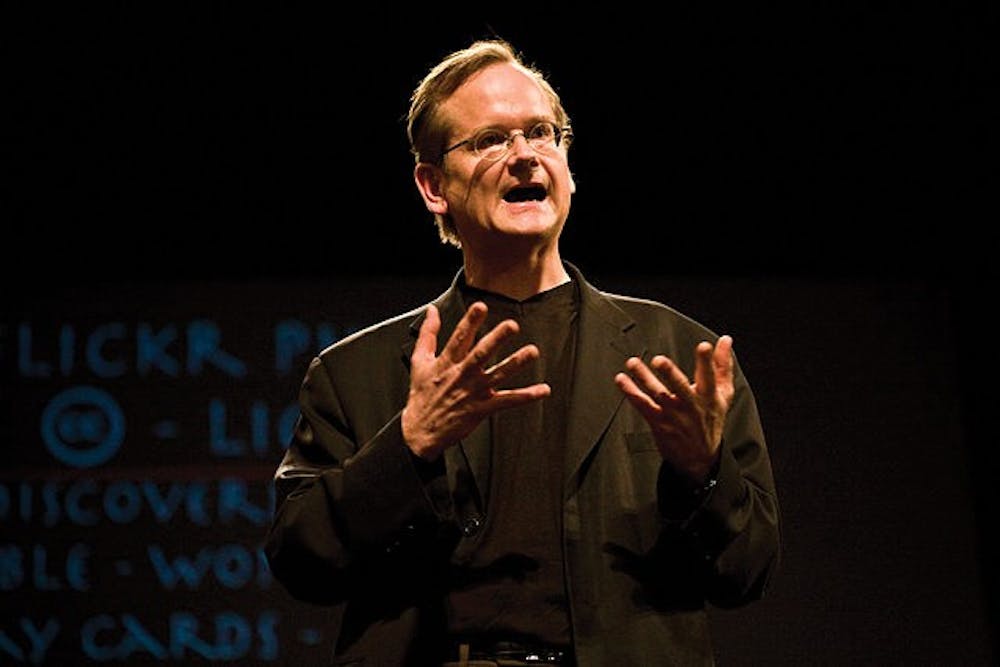
Penn alumnus Lawrence Lessig has suspended his campaign for the Democratic nomination following a change in the debate rules. | Courtesy of Wikimedia Commons
A Penn graduate’s quest for the White House has ended.
Democratic presidential candidate and 1983 College and Wharton graduate Lawrence Lessig announced Monday that he was suspending his campaign amidst changes in presidential debate rules that prevented him from participating in the next Democratic debate.
“I was eager and happy to ask for support for the campaign when there was a prospect of getting into the debates. When there wasn’t, I couldn’t in good faith make that ask. When that’s true, a campaign must end,” Lessig said in a statement posted on his Tumblr page.
A distinguished activist and Harvard Law School professor, Lessig launched his campaign on Sept. 2 after raising $1 million from supporters. His campaign focused on reforming federal campaign finance policies and improving voter access and equality.
He initially promised that if elected, he would step down once he had achieved those goals, but later changed his mind and announced in October that he would be seeking a full presidential term.
The Lessig campaign initially believed that in order to qualify for the televised Democratic debates, Lessig had to have the support of 1 percent of Democratic voters in three national polls conducted within six weeks of the date of a given debate.
After considerable effort, Lessig managed to reach the 1 percent mark last week in a Monmouth University poll, followed by similar rankings in polls by the National Broadcasting Company and the Huffington Post. Under the previously understood rules, this qualified Lessig to participate in the next Democratic debate on Nov. 14.
But late last week, the Democratic National Committee contacted Lessig’s campaign with a new explanation of the debate rules. To participate in the November debate, candidates had to have reached 1 percent in the polls “six weeks before the debate.”
“Under this new rule, Lessig obviously cannot qualify for the Nov. 14 debate. He would have had to qualify four weeks ago!” campaign general consultant Steve Jarding wrote Monday in the Huffington Post.
Lessig has previously protested unfair electoral practices in his academic and professional work. One of his books on the subject, “Republic, Lost: How Money Corrupts Congress — and How to Stop It,” has inspired a Penn writing seminar taught by Critical Writing Program Senior Writing Fellow Christopher Phillips.
“At the core of our democracy there is a hole where the Framers meant there to be a Congress. That crippled and corrupted institution will block progress until it is fixed,” Lessig said of his old platform. “It is an agenda for reforming a failed institution.”
The Daily Pennsylvanian is an independent, student-run newspaper. Please consider making a donation to support the coverage that shapes the University. Your generosity ensures a future of strong journalism at Penn.
DonatePlease note All comments are eligible for publication in The Daily Pennsylvanian.




